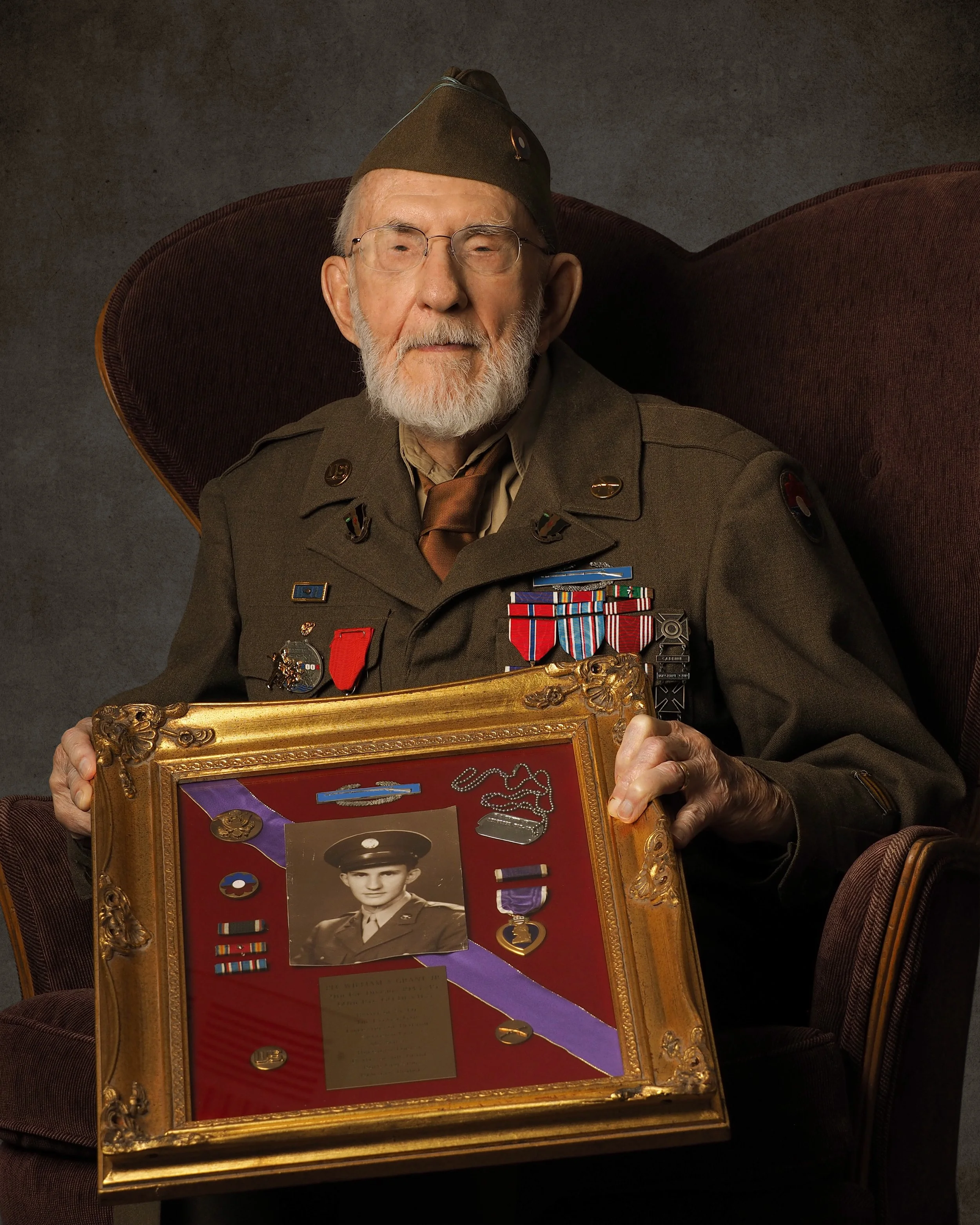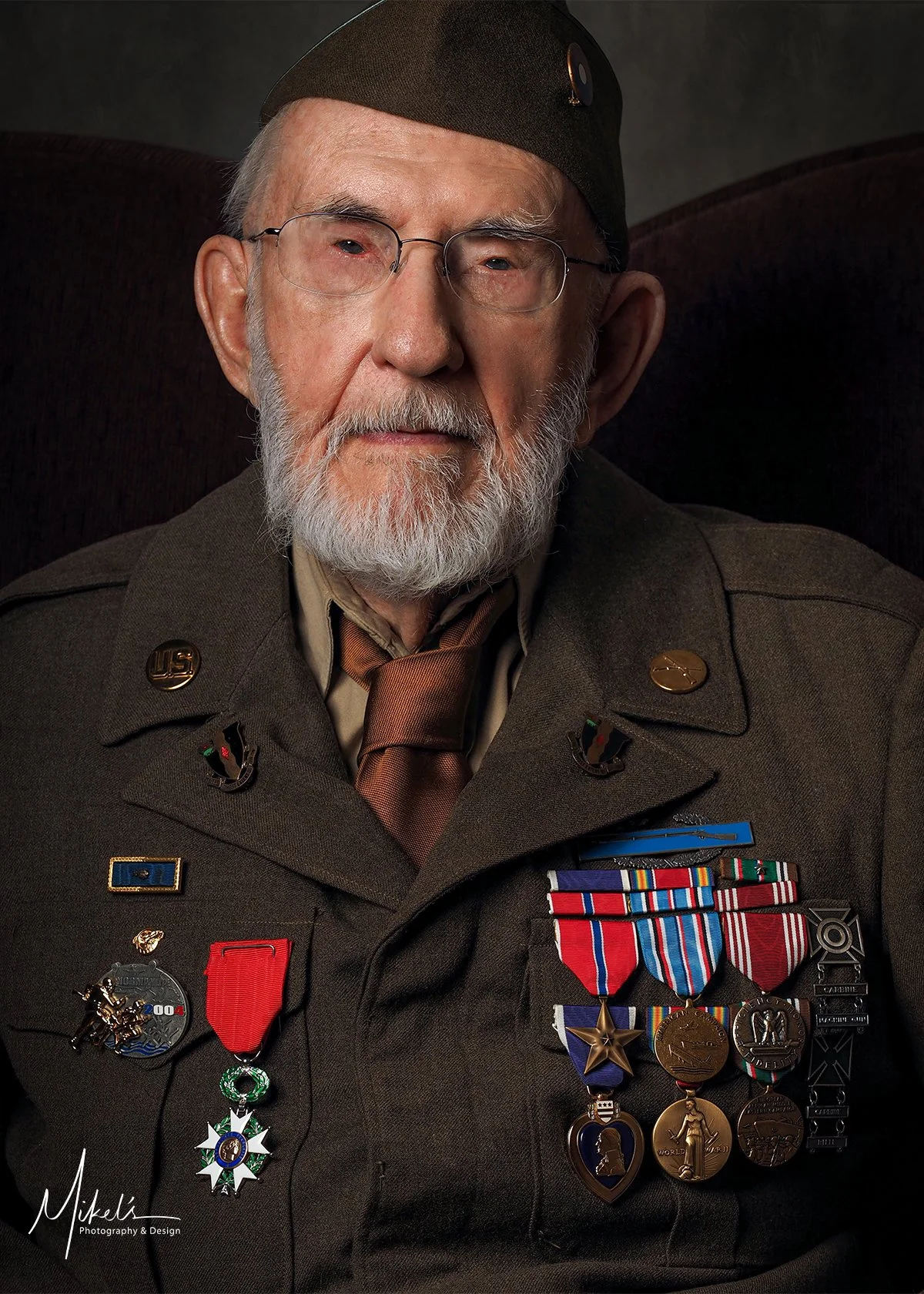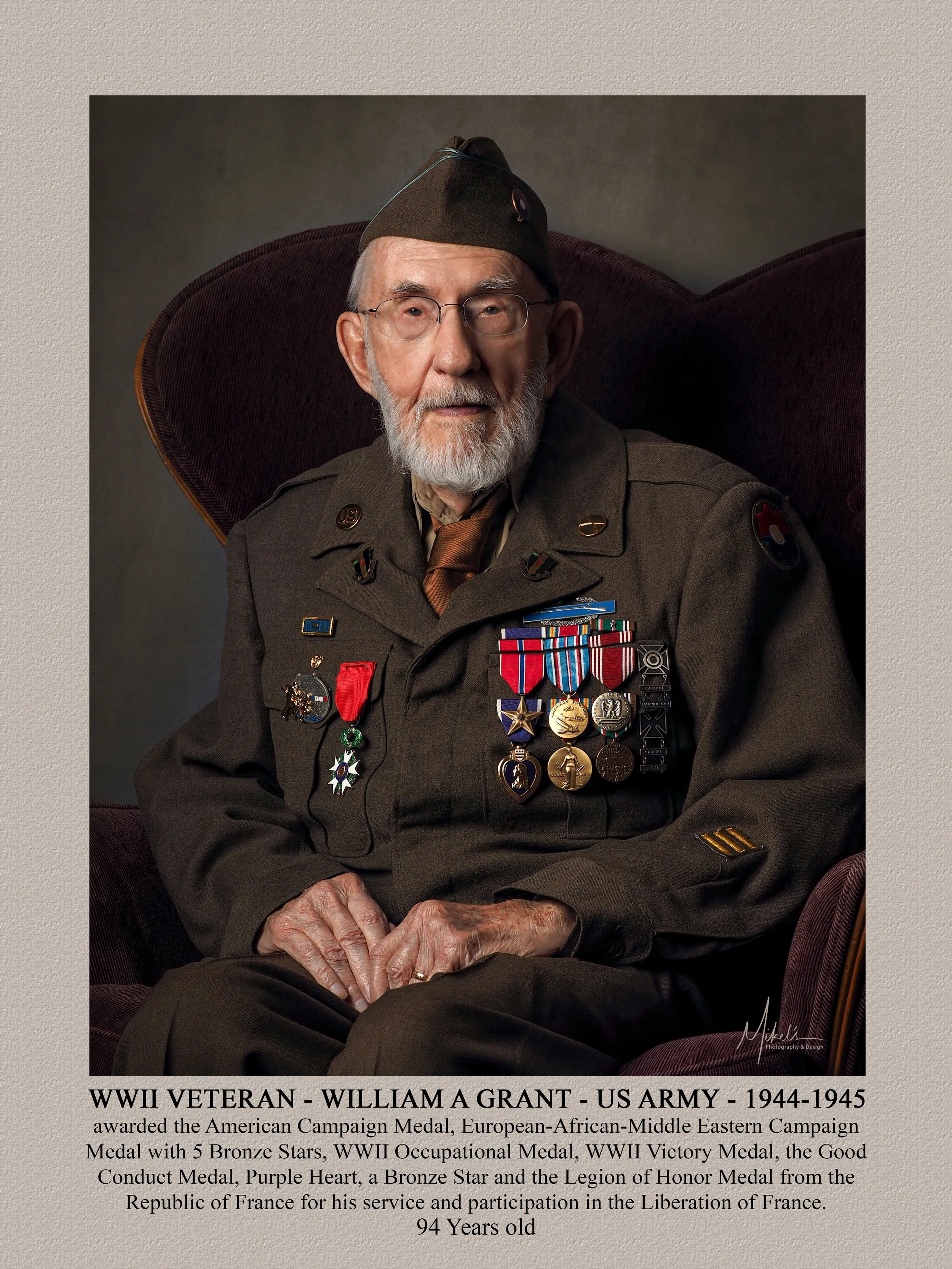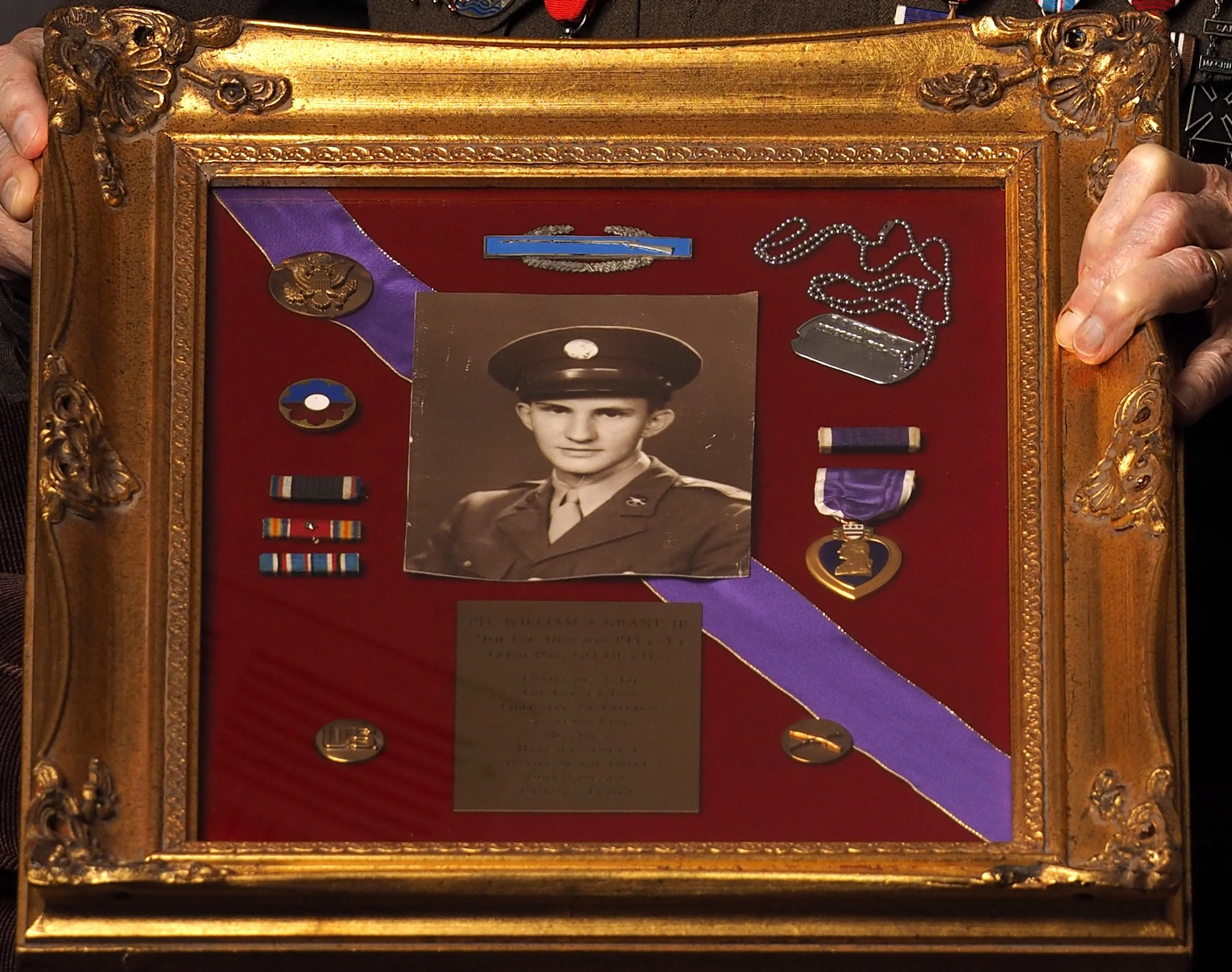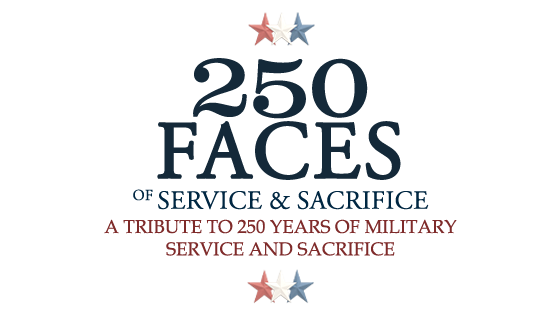WWII Veteran - William Grant – A Life of Service and Dedication
William Grant was born in Pittsburgh, Pennsylvania, on October 4, 1925. By September 1943, he was living with his parents and brother in a rural area outside Pittsburgh and attending the 11th grade in high school. That month, while still a student, he enlisted in the Army at just 17 years old. Shortly after his 18th birthday, he was inducted at Fort Meade, Maryland.
At the Induction Center, William was selected for the Army Specialized Training Program (ASTP) at Fort Benning, Georgia—a program designed to train college students as doctors, engineers, and professionals for military service. Although he completed the three-month course, it was later discovered that he had not yet graduated from high school, making him ineligible. He was transferred to Camp Shelby, Mississippi, where he received advanced infantry training in preparation for combat in the Pacific Theatre.
Plans soon shifted. In May 1944, as preparations were underway to invade German-occupied Europe, William’s assignment changed. He landed at Utah Beach in Normandy, France, on July 12, 1944—just weeks after D-Day.
The very next day, after a four-hour march, he arrived at the front lines near St. Lo. For weeks, his unit advanced against the Germans through the Hedgerow countryside. On July 25, 1944, the Allies launched a massive offensive involving four infantry divisions, thousands of artillery pieces, and waves of bombers in what became known as Operation Cobra. After days of heavy fighting, Allied forces broke through, and on August 1, General Patton’s 3rd Army began its rapid push across France.
William’s unit—Company F, 2nd Battalion, 60th Regiment—fought at the Falaise Gap, where roughly 350,000 German troops were trapped. His company of 180 men was reduced to just 9 soldiers and 2 officers. Within ten days of combat, William was commanding a machine gun squad. For his bravery, he was awarded the Bronze Star for valor in action, though he did not formally receive the medal until December 2017.
Later, illness briefly sent him to England, sparing him from the devastating losses his battalion suffered crossing the Meuse River. Reassigned to a rifle platoon, William fought through the Siegfried Line and was thrown into the brutal Battle of Hürtgen Forest, one of the bloodiest battles of WWII. On October 7, 1944, an artillery shell exploded just feet from his trench, wounding him with shrapnel in his leg, thigh, and back. After a long evacuation through Belgium, Paris, Cherbourg, and finally England, he underwent surgery and spent weeks in recovery.
By January 1945, he was back with his unit in Germany as the Battle of the Bulge raged. He fought in the drive across the Rhine, including the capture of the Ludendorff Bridge at Remagen in March 1945. Days later, he was knocked unconscious by another shell blast and deemed unfit for further combat due to shell shock. In May 1945, he was reassigned to office duty with Allied Control Headquarters in Frankfurt and Berlin, serving until December 1945.
Honorably discharged on December 12, 1945, William returned home and completed his high school diploma in February 1947. Using the G.I. Bill, he attended the University of Pittsburgh, earning his bachelor’s degree in 1950 and his master’s degree in 1955.
That same year, he began a career in federal service with the Social Security Administration and later the Medicare Program, where he played a role in establishing Medicare when it launched in July 1966. Over his 38 years of civil service, William rose to become Division Director in various departments until his retirement in May 1993.
In 1956, William married Camille Khalil. They raised four children together and shared 61 years of marriage until Camille’s passing in 2017. In 2011, William relocated to Las Vegas, Nevada.
For his service, Private William Grant was awarded the American Campaign Medal, the European-African-Middle Eastern Campaign Medal with five Bronze Stars, the WWII Occupation Medal, the WWII Victory Medal, the Good Conduct Medal, the Purple Heart, the Bronze Star, and most recently, the French Legion of Honor for his role in the Liberation of France.
It all begins with an idea. Maybe you want to launch a business. Maybe you want to turn a hobby into something more. Or maybe you have a creative project to share with the world. Whatever it is, the way you tell your story online can make all the difference.
William Grant – A Lasting Legacy: My Reflections
As part of my Remembering Our Veterans project, I had the honor of meeting William and his daughter in December 2019. He was likely one of the last WWII veterans I was able to sit with before COVID struck in 2020. William carried himself with quiet pride and dignity as he shared pieces of his story. Like so many of the Greatest Generation, he was humble, warm, and gracious—never boasting, only saying that he “did what needed to be done.” His daughter, however, beamed with pride and filled the room with stories, ensuring her father’s legacy was honored and celebrated.
